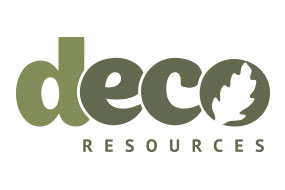Tilapia and rosemary; bluegill and oregano; trout and tarragon: few meals come together as effortless as fish and herbs. This makes it all the more surprising that aquaponics has not yet become a household word. You might not be familiar with aquaponics, but you’ve probably heard of its cousin – hydroponics. In hydroponics, plants are grown in chemically-enriched water. To perfect the operation of a hydroponic unit requires a strong background in chemistry and lots of attention. In contrast, aquaponics is quite simple and forgiving.
An aquaponic garden houses fish, from edible tilapia to pet koi, that can live outside and will eat mosquitoes or other insects. The nutrient-rich water from the fish tank is automatically pumped into grow beds where herbs, vegetables, and fruits grow. The plants absorb the nutrients and filter the water back for the fish, creating a natural cycle. The fish tank can be connected to a downspout and will act as a reservoir for rainwater, preventing runoff and providing water during dry spells.
The Natural Choice
If you’ve been paying attention to our work at DECO then you’re probably already familiar with our Water Garden, which is our version of aquaponics. We have even developed a solar-powered unit (pictured above). We like to say that our solar system is out of this world! You might not know why we are so passionate about it but the explanation is simple. There are three reasons we care about aquaponics: Food, energy, and water.
Food
Access to fresh food is a challenge in many urban areas. There are children who grow up in the city that believe their food comes from the grocery store and don’t understand the process of food production. A number of neighborhoods throughout Pittsburgh are known as food deserts and do not have convenient access to a local market. We see aquaponics as a solution for providing a source of fresh herbs, vegetables, or fruits in dense urban areas without markets or land for gardening. An aquaponic unit can fit into a relatively small area and can be placed on almost any type of surface, including concrete or asphalt.
Water
Clean water is becoming a limited and expensive resource for people around the world. An aquaponic system stores all of the water it needs in the fish tank, the water is only pumped to the plants when it is needed, and excess is returned to the fish tank. This eliminates waste and provides a more efficient process for watering plants. Additionally, aquaponics allows rainwater to be collected during large storm events. This prevents flooding and reduces the impact of Combined Sewage Overflow, which is a multi-billion dollar problem facing the City of Pittsburgh.
Energy
Growing and transporting food can require a tremendous input of energy. As we deplete traditional sources of energy, like gas and oil, prices of food and fuel will continue to rise. The reason we are developing a solar-powered unit at DECO is to show food can be grown with renewable resources. Not only does our system work as a stand-alone unit (yes, even in cloudy Pittsburgh), but it is functional art that illustrates what off-grid energy looks like.
Opening Doors for the Urban Community
Our friends at The Door Campaign have been exploring potential opportunities for aquaponics in economically disadvantaged neighborhoods in Pittsburgh’s Northside. Their focus is on “opening doors” for youth by helping them explore green initiatives, arts and culture, athletics, higher education and other opportunities with mentorship and career development assistance. Using principles of aquaponics, The Door Campaign is engaging local youth to think about how systems work, where their food comes from, and potential business opportunities in environmentally-conscious fields.
They will be hosting their second annual event: Unlocking Doors to Healthier Local Food Choices at 5:30 on Thursday, December 11th at the Pittsburgh Public Market. This will feature eight local chefs, organized by Bobby Fry of Bar Marco, who will present unique and healthful food options as well as art by Ryan Lammie and Baron Batch. Tickets are available here. We encourage everyone to attend and learn more about local food and how it can be grown right in the city.
Innovative Solutions
The conversation around aquaponics in Pittsburgh is growing to include more people with diverse backgrounds. At DECO, we are excited to see new solutions that address issues surrounding food, water, and energy. We continue to partner with local groups by offering our expertise to help bring projects to life through sustainable planning.
To become more resilient, communities need to think about the ‘hardware’ of the physical environment and the ‘software’ of community capacity
Pittsburgh is fortunate to have forward-thinking groups like the Door Campaign, who are proposing innovative ways of providing access to fresh food. In the words of local sustainability activist Maren Cooke: “To become more resilient, communities need to think about the ‘hardware’ of the physical environment and the ‘software’ of community capacity.” Our goal at DECO is to help build the bridges needed to bring the community and environment together in a way that is equitable for everyone.



